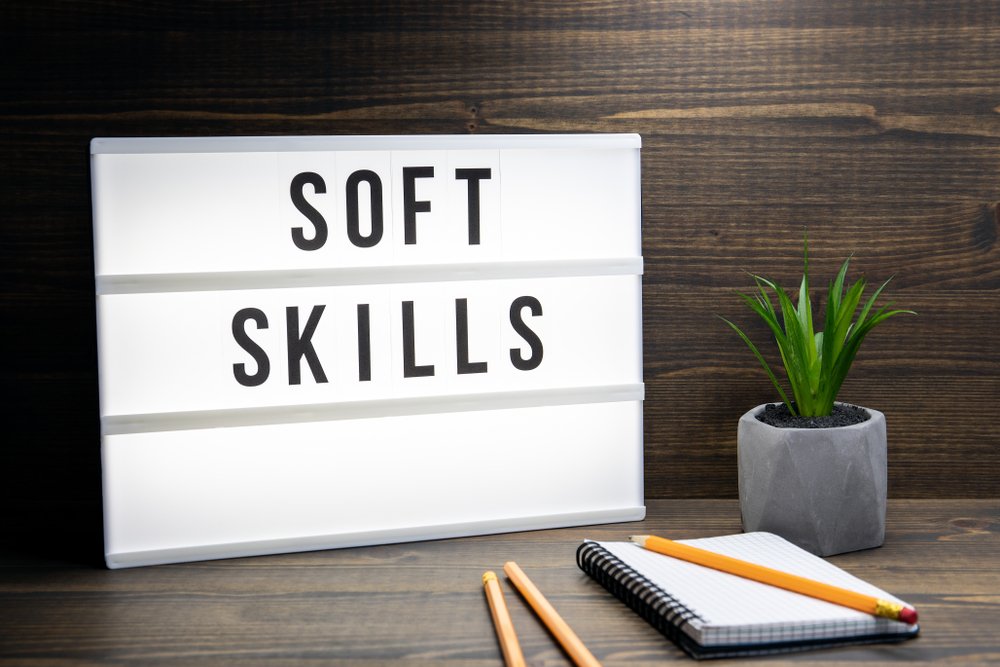The Role of Soft Skills in the Modern Workplace

In today’s rapidly evolving workplace, soft skills have become increasingly important for professional success. As the nature of work continues to change, employers are placing a greater emphasis on hiring individuals who possess not only the necessary technical expertise but also a wide range of soft skills. In this article, we will explore the significance of soft skills in the modern workplace and how they contribute to personal and organizational growth.
Role of Soft Skills in the Modern Workplace
Soft Skills in the Modern Workplace: In a world driven by technological advancements and automation, it’s easy to overlook the importance of soft skills. Soft skills, also known as interpersonal skills or people skills, are the personal attributes that enable individuals to effectively interact with others. They go beyond technical knowledge and play a crucial role in fostering positive work environments, enhancing productivity, and building successful careers.
Read More: Developing Essential Skills for Career Success in 2023
Definition of Soft Skills
Soft skills encompass a broad spectrum of abilities that are not easily quantifiable or measurable. They include communication skills, teamwork, problem-solving, adaptability, leadership, emotional intelligence, time management, and many more. These skills are often intangible but are essential for effective collaboration, personal growth, and professional success.
Importance of Soft Skills
In the modern workplace, technical skills alone are not enough to thrive and excel. Employers now recognize the value of soft skills in creating cohesive teams, driving innovation, and providing exceptional customer service. Soft skills enable employees to navigate complex situations, adapt to changing circumstances, and build strong relationships with colleagues, clients, and stakeholders. They are the glue that holds organizations together and sets individuals apart in their careers.
Communication Skills
Soft Skills in the Modern Workplace: Effective communication lies at the core of all successful interactions. Whether it’s conveying ideas, active listening, or resolving conflicts, strong communication skills are essential for collaboration and building trust among team members. Clear and concise communication ensures that messages are understood, prevents misunderstandings, and fosters a positive work environment.
Teamwork and Collaboration
In today’s interconnected and globalized workplace, teamwork and collaboration are vital for achieving collective goals. Soft skills such as cooperation, active participation, and respect for diverse perspectives enable teams to work cohesively, share knowledge, and leverage individual strengths. Effective collaboration fosters innovation, improves problem-solving capabilities, and enhances overall team performance.
Problem-Solving and Critical Thinking
The ability to analyze complex problems, think critically, and propose creative solutions is highly valued in the modern workplace. Soft skills related to problem-solving and critical thinking empower individuals to identify challenges, evaluate options, and implement effective strategies. These skills enable employees to tackle obstacles, make informed decisions, and contribute to organizational success.
Adaptability and Flexibility
In today’s fast-paced and dynamic business environment, adaptability and flexibility are crucial skills. Soft skills associated with adaptability allow individuals to embrace change, adjust to new technologies, and thrive in uncertain circumstances. Flexibility enables employees to handle multiple tasks, adjust priorities, and respond to evolving organizational needs effectively.
Leadership and Management Skills
Leadership and management skills are essential for guiding teams, motivating employees, and driving organizational success. Soft skills in this domain include effective communication, empathy, delegation, decision-making, and conflict resolution. Strong leadership fosters a positive work culture, inspires innovation, and empowers individuals to reach their full potential.
Emotional Intelligence
Emotional intelligence refers to the ability to recognize and manage emotions, both in oneself and others. Soft skills related to emotional intelligence, such as empathy, self-awareness, and relationship building, facilitate effective interpersonal relationships, improve teamwork, and enhance overall workplace harmony. Employees with high emotional intelligence can navigate conflicts, handle stress, and establish positive connections.
Time Management and Organization

In a world filled with numerous responsibilities and deadlines, time management and organization skills are vital. Soft skills in this area involve prioritization, goal setting, task management, and effective planning. Individuals who excel in time management can optimize productivity, meet deadlines, and maintain a healthy work-life balance.
Conflict Resolution
Conflict is an inevitable part of any workplace, but the ability to handle conflicts constructively is crucial. Soft skills related to conflict resolution include active listening, negotiation, empathy, and diplomacy. Employees who possess these skills can defuse tense situations, find common ground, and foster win-win solutions that benefit all parties involved.
Customer Service Skills
Delivering exceptional customer service is a key differentiator for businesses across industries. Soft skills in customer service involve active listening, problem-solving, empathy, and effective communication. Employees with strong customer service skills can build positive relationships with clients, address their needs, and ensure customer satisfaction.
Innovation and Creativity
Innovation and creativity are essential drivers of growth and success in the modern workplace. Soft skills associated with innovation include critical thinking, curiosity, open-mindedness, and the ability to think outside the box. Cultivating a culture that encourages and rewards innovation empowers employees to generate new ideas, improve processes, and stay ahead in a competitive market.
The Impact of Soft Skills on Career Advancement
Soft skills play a pivotal role in career advancement and professional growth. While technical competence may help individuals secure a job, it is the possession and application of soft skills that enable employees to progress within their organizations. Soft skills contribute to effective leadership, successful project management, and the ability to adapt to changing roles and responsibilities. Individuals who continually develop their soft skills are more likely to be promoted, trusted with higher-level responsibilities, and considered for leadership positions.
Soft Skills Training and Development
Recognizing the significance of soft skills, many organizations now invest in training and development programs to enhance these competencies among their workforce. Soft skills training can take various forms, including workshops, coaching, online courses, and mentoring programs. By providing employees with opportunities to develop and refine their soft skills, organizations not only foster individual growth but also create a more productive and harmonious workplace.
Read More: Developing SEL Skills With Service Learning
Conclusion: Soft Skills in the Modern Workplace
In conclusion, Soft Skills in the Modern Workplace While technical expertise remains crucial, it is the possession of soft skills that enables individuals to navigate challenges, foster effective communication, build strong relationships, and drive organizational success. Employers value employees who can adapt, collaborate, think critically, and lead with empathy. By continuously developing these skills, individuals can enhance their career prospects, contribute meaningfully to their organizations, and create a fulfilling work experience.
FAQs
Q1: Why are soft skills important in the workplace?
Soft skills are important in the workplace because they enable effective communication, teamwork, problem-solving, adaptability, and leadership. They contribute to a positive work environment, enhance productivity, and foster professional growth.
Q2: Can soft skills be learned and improved?
Yes, soft skills can be learned and improved through training, practice, and self-reflection. Continuous development and refinement of soft skills can lead to personal and professional growth.
Q3: Which soft skills are most valued by employers?
While the importance of specific soft skills may vary depending on the industry and job role, some highly valued soft skills include communication, teamwork, problem-solving, adaptability, leadership, and emotional intelligence.
Q4: How can organizations promote the development of soft skills?
Organizations can promote the development of soft skills by offering training programs, providing opportunities for collaboration and teamwork, fostering a culture of continuous learning, and recognizing and rewarding employees who demonstrate strong soft skills.
Q5: How can individuals improve their soft skills?
Individuals can improve their soft skills by seeking feedback, practicing effective communication, taking part in team projects, seeking mentorship, attending workshops or courses, and actively reflecting on their interactions and experiences.






One Comment